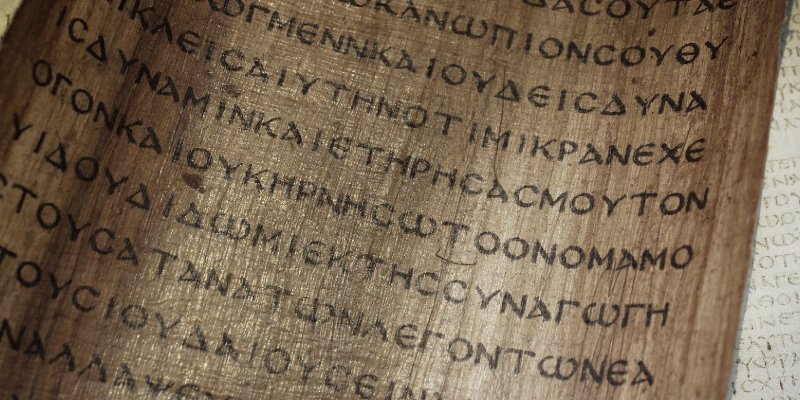The Talmud, along with several other ancient sources, both Jewish and non Jewish, records the following story:
King Ptolemy once gathered 72 Elders. He placed them in 72 chambers, each of them in a separate one, without revealing to them why they were summoned. He entered each one's room and said: "Write for me the Torah of Moshe, your teacher". God put it in the heart of each one to translate identically as all the others did.
Although many historians question the details of this narrative, there is no question that in the Third Century BCE, Jewish scholars translated the five books of Moses into Koine Greek, the language of the Hellenistic empire. Over the next century or two, the other Biblical books were also translated, along with material that is not in our Tanach. This is known as the Septuagint, the "Translation of the Seventy", which became standard Scripture in the assimilated communities of the Empire, especially in Egypt, and later became accepted Scripture for early Christians, from Paul on. (Earlier quotes from Tanach are direct translations from the Hebrew). To this day, the Septuagint is the only version of Tanach recognized as authoritative in the Greek Orthodox Church.
The Talmud records that some deliberate changes were introduced by the translating rabbis, in places where a literal translation would be misleading. In some places, especially in the Book of Isaiah, the "translation" is little more than a paraphrase. By the Third Century CE, Jews had abandoned the Septuagint. Torah was studied and read in Hebrew. In those parts of the Eastern Roman Empire (whose language was Koine Greek, rather than Latin) where the Jews did not remember Hebrew, the far more literal translation of Aquila was substituted. Only fragments of the latter survive.
We would expect the Septuagint to have been greatly celebrated by the rabbis. HaShem's Torah was, for the first time, made known to the Nations. But, on the contrary, this magnum opus was seen as a cause for mourning. "When the Torah was translated into Greek, three days of darkness fell on the world" (Talmud Megillah). A fast was instituted, which later was incorporated, together with other tragedies, into the fast of the Tenth of Tevet. But why? We had "made it"; Judaism was now "on the map". Several reasons were offered. One is that each word of the Hebrew original is pregnant with meaning. A translation...any translation... could, at best, convey only one of these meanings. The Italians have a saying "A Translator is a Traitor". Also, with Scripture in non Jewish hands, it could be easily distorted. The Book of Esther, in the Septuagint, is practically a different book! Haman is no longer an Agagite, but a Greek, seeking to undermine the Persian Kingdom in order to enable the conquest of Alexander. Worse still, the word "hanged" (applied to Haman and his sons), is the same word as "crucified", which infuriated Greek speaking Christians, who felt they were being mocked. This caused much antisemitism, and even violence, each year when Purim was celebrated.
But beyond these reasons, many of the rabbis saw a more fundamental problem with a translation.We read in Deuteronomy 33:4 "Moses commanded us the Torah, The inheritance of the congregation of Jacob". The Torah was our gift from G-d! It was sacrilege to give it to others! The rabbis went on to homiletically say "Do not read "Morashah" (an inheritance), but "meorasah" (betrothed Bride). We are surrendering our Betrothed to every passerby. The latter homiletic interpretation converts the sharing of our heritage, into an act of depravity. Surprisingly, RAMBAM quoted this Drash as halachah. Or DOES HE? Next time.
